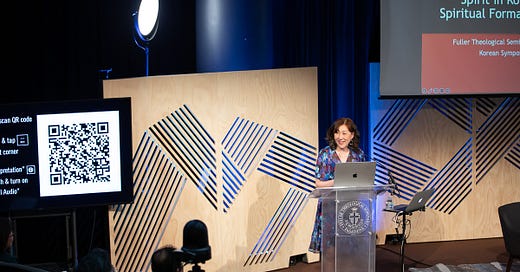The Work of the Holy Spirit in Korean Spiritual Formation
I was honored to be invited to be a keynote speaker at Fuller’s Korean Studies Center Symposium. I gave a talk on “The Work of the Holy Spirit in Korean Spiritual Formation”. Parts of my talk was drawn from my book, Reimagining Spirit. Below is a portion of my talk which will later be published in a book.
The Work of the Holy Spirit in Korean Spiritual F…
Keep reading with a 7-day free trial
Subscribe to Loving Life to keep reading this post and get 7 days of free access to the full post archives.




